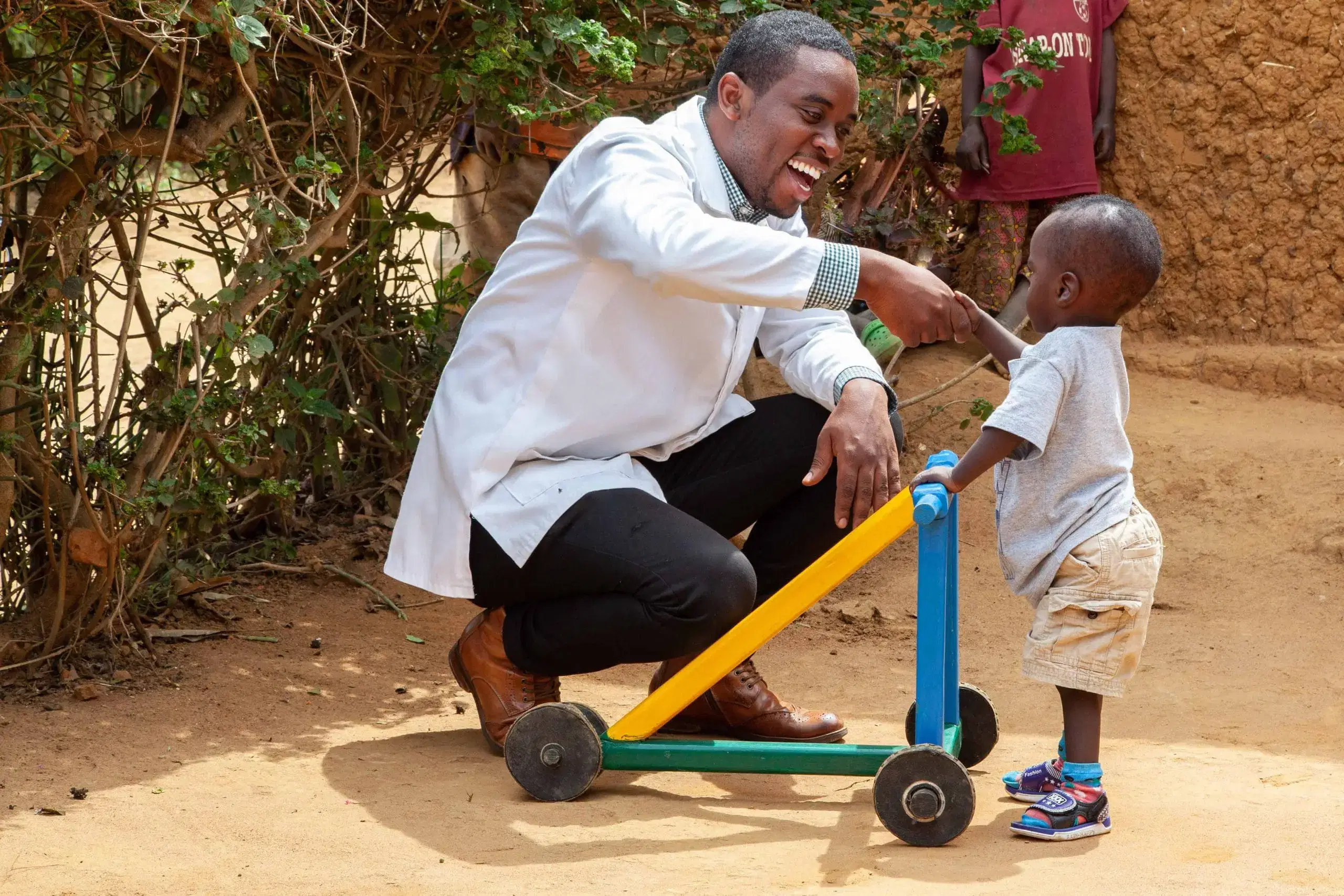Rwanda, Huye & Bugasere
June 2023 – Ongoing
Funding Partner: UNICEF
Local Partner: Chance for Childhood
Why is the project needed?
The Rwandan genocide in 1994 orphaned thousands of children across the country, leading to a surge in orphanages. A study showed that a staggering 80% of children in these orphanages were not orphans but children put in institutions because their parents couldn’t cope with them at home. Sadly, 90% of these children were never prepared for independent living. They were at risk of abuse and neglect, and half of those that did leave ended up in conflict with the law and homeless. In 2012, the Rwandan Government recognised the harmful nature of orphanages and launched a National Child Care Reform promising to close all orphanages and, where possible, reunite children with their families.
As award-winning experts in Inclusion and Disability, we were asked to work in partnership with Unicef Rwanda to identify children with disabilities that had been reunited with their families or were living in communities and to prioritise family-based care for each child.
Every child deserves love, support, education and attention from family and their communities
About the Project
This project helps children with disabilities who are moving from institutions back to their families. We provide support to families and communities to ensure they have the right tools and services to care for these children. The project makes basic services like education, healthcare, and social protection easier to access and more affordable. We also work to change harmful attitudes and stop discrimination against children with disabilities.
To support the children’s physical needs, we provide physiotherapists who work directly in the community to help children improve their mobility and overall health. Additionally, we supply assistive devices, such as walking frames, to help children with disabilities live more independently. The project uses the strengths and resources already in the community to build a safer, more inclusive environment, ensuring families can raise their children in loving, supportive homes.
Goals and Objectives
To help children with disabilities successfully rejoin their families and prevent future family separations, this project focuses on three main goals:
- Access to Services: Helping children with disabilities get the services they need, such as education, healthcare, and rehabilitation.
- Community and Family Support: Bringing together local government, organisations, and families to build peer support groups and strengthen community support.
- Raising Awareness: Teaching communities to understand and include children with disabilities by addressing negative attitudes, stigma, and discrimination.
The project aims to reach 43,205 children and their families, including:
- 13,378 Parents of children with disabilities
- 6,689 Children with disabilities (CwDs)
- 438 Frontline Volunteers (including 146 National Council of Persons with Disabilities coordinators, IZUs, and 146 community health workers)
- 245 Headteachers
- 32 Health officials
- 323 Local leaders (including 146 Social Economic Development Officers, 146 Education Support Cell officers, 29 sector social affairs officers, and 2 district medical officers)
- 35 Education officials
- 8,000 Community members
- 20,500 Siblings of children with disabilities
- 820 Households (in Bugesera and Huye districts)
Our impact
Our awareness efforts have reached 13,755 community members, helping to create a more inclusive and supportive environment for children with disabilities.
Physiotherapy Support: We have provided two physiotherapists who work directly in the community, helping children with disabilities improve their mobility and well-being.
Reaching Children and Families: We have supported 6,689 children with disabilities (CwDs) and 6,689 parents of children with disabilities.
298 frontline volunteers, including community health workers and coordinators, have been trained to support these families.
We have engaged 245 headteachers, 32 health officials, and 362 local leaders, along with 32 education officers to strengthen community support.

